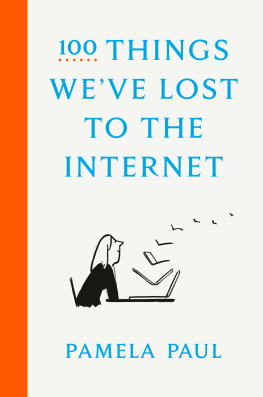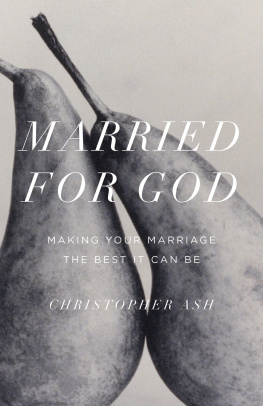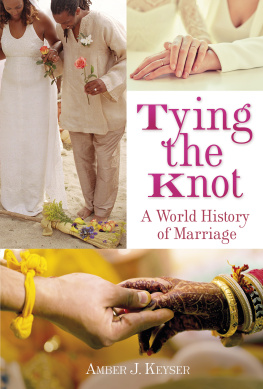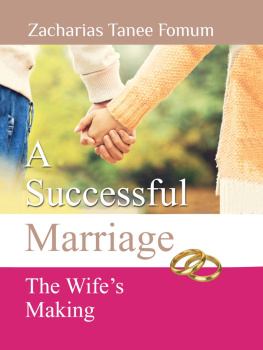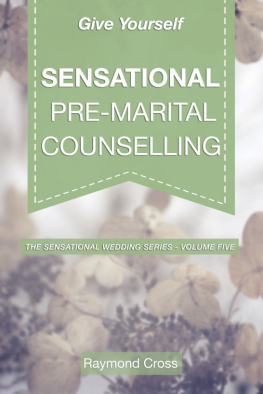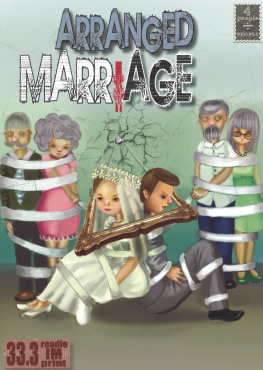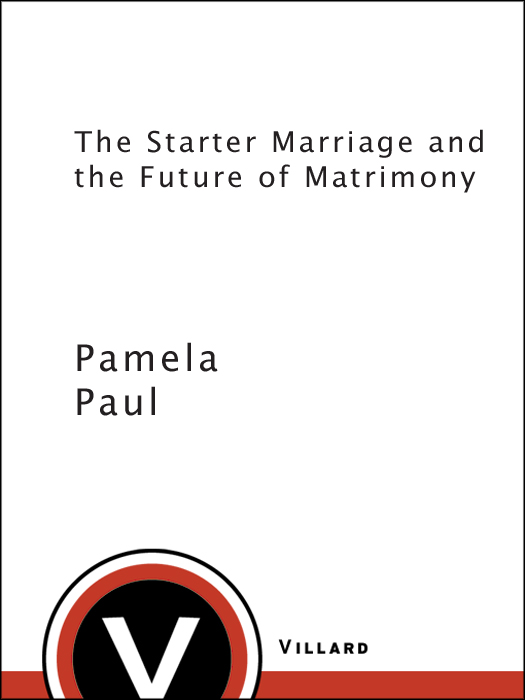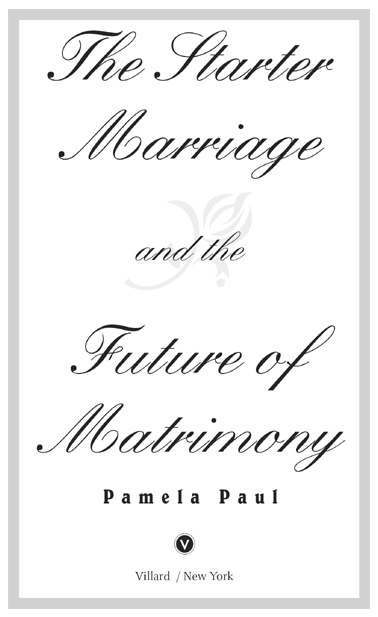Copyright 2002 by Pamela Paul
All rights reserved under International and Pan-American Copyright Conventions. Published in the United States by Villard Books, a division of Random House, Inc., New York, and simultaneously in Canada by Random House of Canada Limited, Toronto.
V ILLARD B OOKS is a registered trademark of Random House, Inc. Colophon is a trademark of Random House, Inc.
Library of Congress Cataloging-in-Publication Data
Paul, Pamela.
The starter marriage and the future of matrimony /
Pamela Paul.
p. cm.
eISBN: 978-1-5883-6228-5
1. MarriageUnited States. 2. DivorceUnited States. 3. Young adults
United States. 4. Generation XUnited States. I. Title.
HQ536 .P378 2002
306.810973dc21
2001033250
Villard Books website address: www.villard.com
24689753
v3.1
To my parents
Contents
Introduction
Saying I Do Is Easy to Do
BEFORE I GOT DIVORCED, I GOT MARRIED FOREVER. I was twenty-seven and in love. Id been engaged for longer than a year and had planned my wedding over the course of eleven blissful, intoxicating months. The September ceremony took place outdoors in a reverential setting in Upstate New York, attended by supportive family and friends. Wearing flowers in my hair and a flowing white wedding gown with train, I exchanged traditional vows with my betrothed. Including the rehearsal dinner, reception, and Sunday brunch, the affair consumed an extended weekend, thousands of dollars, and a lifetime of dreams, hopes, and anticipation.
I believed in marriage, and I certainly did not believe in divorce. I was pleased to settle into my new marriage, my new life, my new me.
Three weeks shy of our first anniversary, my husband and I decided to divorce.
No one goes into a marriage expecting divorce, though as prenuptial agreements become mainstream and the failure rate hovers between 40 and 50 percent, its clear few of us go into a marriage with what one could call realistic expectations. Yet popular culture and the attitudes of todays marrying generation belie these facts. The virtues of marriage are extolled in the public sphere and reflected in public opinion. Young people today hold marriage in unusually high regard. In a 1977 poll, nine out of ten 18- to 29-year-olds said that a happy marriage is part of their idea of the good life14 percentage points higher than only six years before. (This compared with their more jaded elders: roughly 80 percentand fallingof adults aged thirty to fifty-nine agreed.
This stands in striking contrast to the behavior and attitudes of Baby Boomers and the sixties generation. The widespread introduction of the Pill and the sexual revolution, the advent of feminism and consciousness-raising groups, and the freedoms extolled by the Me Generation demonstrated to women in their twenties that they didnt have to marry, that marriage was unnecessary. A pop-psychological shift taught men and women in their thirties that if their marriage wasnt serving them well, it was okay to divorceeven better for them in the end. The underlying core value, enthusiastically embraced, was independence.
Be free. Listen to your heart. Do what you need to do for the sake of your own happiness. You deserve it. In the suburbs of the seventies, unsettling waves of divorce passed over entire communities. In my parents circle of tennis-club members and nursery school friends, only one marriage survived past 1976, and it wasnt in my family. By the time I was four, I was spending Divorced Dad Thursdays with half my nuclear family at the local diner.
Then in the 1980s a fundamental shift began to take place. AIDS, unwed motherhood, nuclear-arms buildup, homelessness, and other signs of instability left Americans grasping for a sense of security. With Ronald Reagan and his devoted Nancy ensconced in the White House, beaming at each other on the cover of Vanity Fair, the country had an icon of marital stability toward which to aspire (never minding the presidents early divorce). And thus the birth of family values, promoting the virtues of matrimony and personal responsibility, was greeted with welcome relief by social conservatives, lonely Ice Storm divorcs, and confused recovering hippies awakening from their sixties hangovers.
If the eighties marked a rebirth of moraliticking, the nineties saw family values flowing freely from the ranks of the religious right to the mainstream mind-sets of the average American youth. Today few people say they dont believe in the ideas behind the banner of family values, even if they scoff at the political baggage surrounding the term. Whats more, that once amorphous phrase is now being replaced with policy specificsmost specifically, matrimony. In 1999, when the Senate Task Force on Culture, whose function it would be to discuss pressing societal issues such as marriage, was created by Congress, Maggie Gallagher, director of the Marriage Project at the Institute for American Values, remarked, Hold on! Did I read that right? Yes, there it is in cold print: the M-word, marriage. This is something new. Ten years ago, marriage was seldom mentioned in political discourse. In the late 80s and early 90s, when conservatives and other concerned Americans wanted to discuss disturbing cultural trends, they usually spoke not about marriage per se, but about family breakdown, or unwed childbearing, or (more often) just welfare reform. But with Americans today agreeing to ideas such as covenant marriages (new undivorceable unions offered in several states), marriage-training high school classes, and calls to repeal no-fault divorce laws and the so-called marriage penalty tax, the idea that Congress would create a special committee on marriage should come as no surprise.
The ideal American lifestyle has become inextricably linked to matrimony. The CEO icons of the new millennium, both male and female, contrast themselves favorably with the power-hungry bankers and single-minded career women of the eighties by proudly brandishing their wedding rings, family-friendly SUVs, and well-rounded lifestyles. They boast of achieving balance in their lives. When they discuss their goals and their values, they point out their overriding desire to get home to the kids at the end of the day. They express their political beliefs by paying tribute to family and the next generation.
One wonders why the voices of traditionalism continue to drone on censoriously at a generation that only nods in assent. Todays youth certainly doesnt need to hear these lectures. On the television show Once and Again, its the parents who talk about the need to take care of themselves and pursue their own happiness, while the children lament their elders sexuality and selfishness. In a 1999 poll more Boomers than Gen Xers agreed with the following statement: People should live for themselves rather than their children. Perhaps Gen X is exercising a resentful revenge.
Gen X rebellions have turned out to be quite different from the brazen revolutions that came before them. After all, rebellion must acquire a new definition for a generation whose predecessors were the ultimate rebels. Todays twentysomethings show their parents that they are not like them by sidling up to the very institutions their parents neglected or debunked. And then they go one step further and prove theyre better at the good life than their parents ever were.


